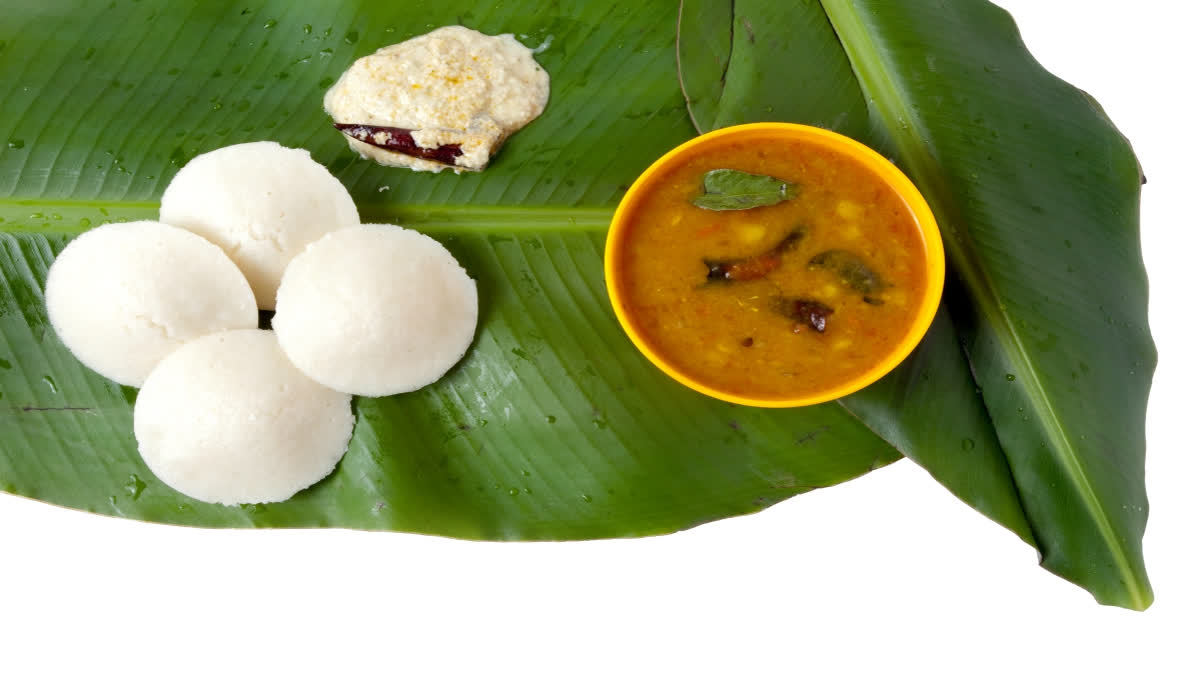Hyderabad: World Idli Day is celebrated on March 30 every year. Idli is a type of savoury rice cake, popular as a breakfast food in South India and Sri Lanka.
The cakes are made by steaming a batter consisting of rice and fermented black lentils. The celebration of the day started a few years ago when a passionate idli lover dedicated a day to this South Indian staple food. It was started in 2015 by M. Eniyavan, an idli caterer from Chennai in Tamil Nadu.
History of Idli: The first mention of a 'mungo bean' dish similar to the modern idli dates back to the 10th century AD. While there is evidence back from 10th century AD that says idli originated in Karnataka, there is mention of idli in Vaddaradhane, a Kannada work published in 920 AD. However, food writer KT Achaya has a different spin in his book Indian Food, which says that idli is the Indianised version of Kedli – an Indonesian dish. Food historian Katie Acharya says that Idli was born in Indonesia.
History of World Idli Day: Eniyavan, a popular caterer based in Chennai started World Idli Day on March 30, 2015, by making 1,328 different varieties of idlis. He also made a huge 44-kilogram idli which was cut by government officials and that is how World Idli Day started almost eight years ago.
Health benefits of Idli
Rich in fibre: Idli is the best food for the diet. Idli contains a good amount of protein, carbohydrates, and fibre while sambhar contains a lot of vegetables. This meal is completely healthy and delicious and also keeps fuller for longer hours.
Aids weight loss: Idli does not contain oil and it is steamed in such a proportion as to make the stomach full for longer. It is rich in nutrients and that is why it is also considered as a breakfast option. Including this puffy rice in the diet will help in weight loss.
Easily digestible: Rice idli and sambhar are simple to metabolise.
Gluten-Free and Lactose-Free: Idli is a naturally gluten-free and lactose-free food. It is suitable for individuals with gluten intolerance, celiac disease, or lactose intolerance.
Versatile and Customisable: Idli can be made with oats, rawa, ragi, moong dal etc. and enjoyed with a variety of accompaniments, like sambar, chutney, or a healthy curry. This versatility of idli absorbs every flavour combination and adds to the overall nutritional value of the meal.
Promotes blood oxidation: Idli contains iron which prevents oxygen from binding and doesn’t contain saturated fat that elevates cholesterol levels in the body. This reduces the risk of cardiovascular diseases.
Reduces Obesity: Idli has a decent amount of protein. So, it helps keep you full for long and improves your digestive health. Thus, reducing the chances of obesity and other related conditions like diabetes.
Improves Gut Health: Studies have established that consuming a fermented food like idli adds essential probiotics into your diet that are best for keeping your gut happy and also boosts the absorption of micronutrients.
Types of Idli: Udupi-Style Idli, Mallige Idli, Kancheepuram Idli, Moode Idli, Ramasseri Idli, Thatte Idli, Taushe Idli, Spot Idli/Tawa Idli, Oats, Quinoa, Ragi Idli



